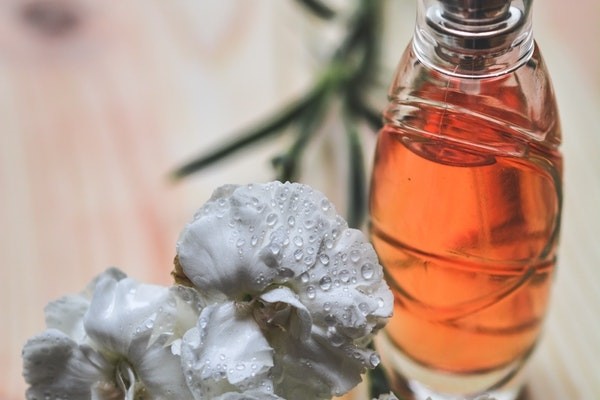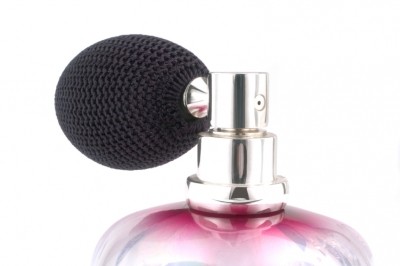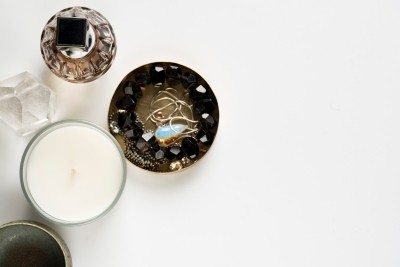Does sex still sell fragrance?

A growing body of evidence reveals that after years of being bombarded by provocative and enticing image of scantily clad models, many consumers have now become immune, even a little bored with sex. They have other things to be getting on with, it seems.
So what is the reason for the big change in direction? Cosmetics Design connected with market research expert Nicole Fall, founder of trend forecasting and intelligence agency Five by Fifty, to find out more.
Fall gave a presentation at last month’s in-cosmetics Korea, in which she underlined how this change in track is manifesting itself in the Asia Pacifica region, while stressing that the general shift is a global phenomenon.
“Traditionally, fragrance advertising has been built on the act of sex and seduction. Marketing for perfumes and colognes often uses semi-naked people to advertise brands with the idea a particular scent could help ignite sexual attraction,” Fall said.
Sex and fragrance not so compatible
Fall points to a quick search on Google, using the term ‘sex’ + ‘fragrance’, which will quickly throw up hundreds if not thousands of examples of brands that have used this formula over the years.
But Fall’s research on the subject points to a growing body of evidence to suggest that people are having less sex and even have less time to devote to it than previous generations, while they are also visiting fewer bars and staying in more – living altogether quieter lives it seems.
“The late 90s was a world where hedonism was clearly a part of the cultural zeitgeist, and was a period of time people were actually having more sex on average than they were today,” Fall said.
She backs up this statement with research published in the March edition of the Archives of Sexual Behavior journals, which cites that in 2014 American adults are having sex nine times less per year than they were in the late 1990s.
What are consumers doing instead?
So if individuals are actually having less sex, then what are they filling their time with? According to Fall it seems that staring into screens is increasingly filling the void, with time spent on Facebook, playing video games and binge watching Netflix making up for the lost time.
Indeed, it seems consumer have been so consumed with social media in particular, that it is eating into their sex life and even quelling their appetite for it, pointing to the need for a new, fresher approach for marketing fragrances.
“With these major shifts in behaviour, attitudes to what is considered attractive are rapidly changing… so not only do fragrances sold on sex appear seem dated and off message, they can also start to feel offensive,” Fall said.
Economic and demographic changes
Other significant changes include stagnated wages and higher debt levels, which is causing millennials to marry later and delaying home buying.
In turn, this is leading to a higher number of single income households, while simultaneously pushing more and more women into the workforce, a situation that is changing the dynamics of households and also having a significant impact on consumer spending patterns.
So how is all of this affecting the way in which people are buying fragrances today? To find out more, please look out for part two of this article, which will highlight the move towards, natural, personalised and home scents.





![Latest developments from the South Korean beauty market. [Getty Images]](/var/wrbm_gb_food_pharma/storage/images/_aliases/wrbm_tiny/publications/cosmetics/cosmeticsdesign-asia.com/headlines/brand-innovation/korea-focus-able-c-c-kolmar-and-more-in-this-k-beauty-round-up/17357973-1-eng-GB/Korea-focus-Able-C-C-Kolmar-and-more-in-this-K-beauty-round-up.jpg)

![Able C&C has furthered its partnership with Japanese discount chain Daiso with new makeup launch. [A'pieu]](/var/wrbm_gb_food_pharma/storage/images/_aliases/wrbm_tiny/publications/cosmetics/cosmeticsdesign-asia.com/headlines/brand-innovation/a-pieu-and-daiso-launch-exclusive-2-makeup-line/17339117-1-eng-GB/A-pieu-and-Daiso-launch-exclusive-2-makeup-line.jpg)
![Down Under Enterprises is setting sights on the Asian market as environmental sustainability and traceability become increasingly important. [Getty Images]](/var/wrbm_gb_food_pharma/storage/images/_aliases/wrbm_tiny/publications/cosmetics/cosmeticsdesign-asia.com/headlines/market-trends/down-under-enterprises-shifts-focus-to-china-as-environmental-sustainability-traceability-come-into-the-spotlight/17304932-1-eng-GB/Down-Under-Enterprises-shifts-focus-to-China-as-environmental-sustainability-traceability-come-into-the-spotlight.jpg)
![News updates from Shiseido, Dr.Ci:Labo, Sephora, and more. [Shiseido]](/var/wrbm_gb_food_pharma/storage/images/_aliases/wrbm_tiny/publications/cosmetics/cosmeticsdesign-asia.com/headlines/brand-innovation/updates-from-shiseido-dr.ci-labo-sephora-and-more/17334944-1-eng-GB/Updates-from-Shiseido-Dr.Ci-Labo-Sephora-and-more.jpg)

![Clariant has underscored the importance of localisation strategies and distribution capabilities in China with beauty trends evolving at a rapid pace. [Getty Images]](/var/wrbm_gb_food_pharma/storage/images/_aliases/wrbm_tiny/publications/cosmetics/cosmeticsdesign-asia.com/article/2024/04/16/clariant-emphasises-importance-of-localisation-in-the-era-of-viral-trends/17327969-1-eng-GB/Clariant-emphasises-importance-of-localisation-in-the-era-of-viral-trends.jpg)


